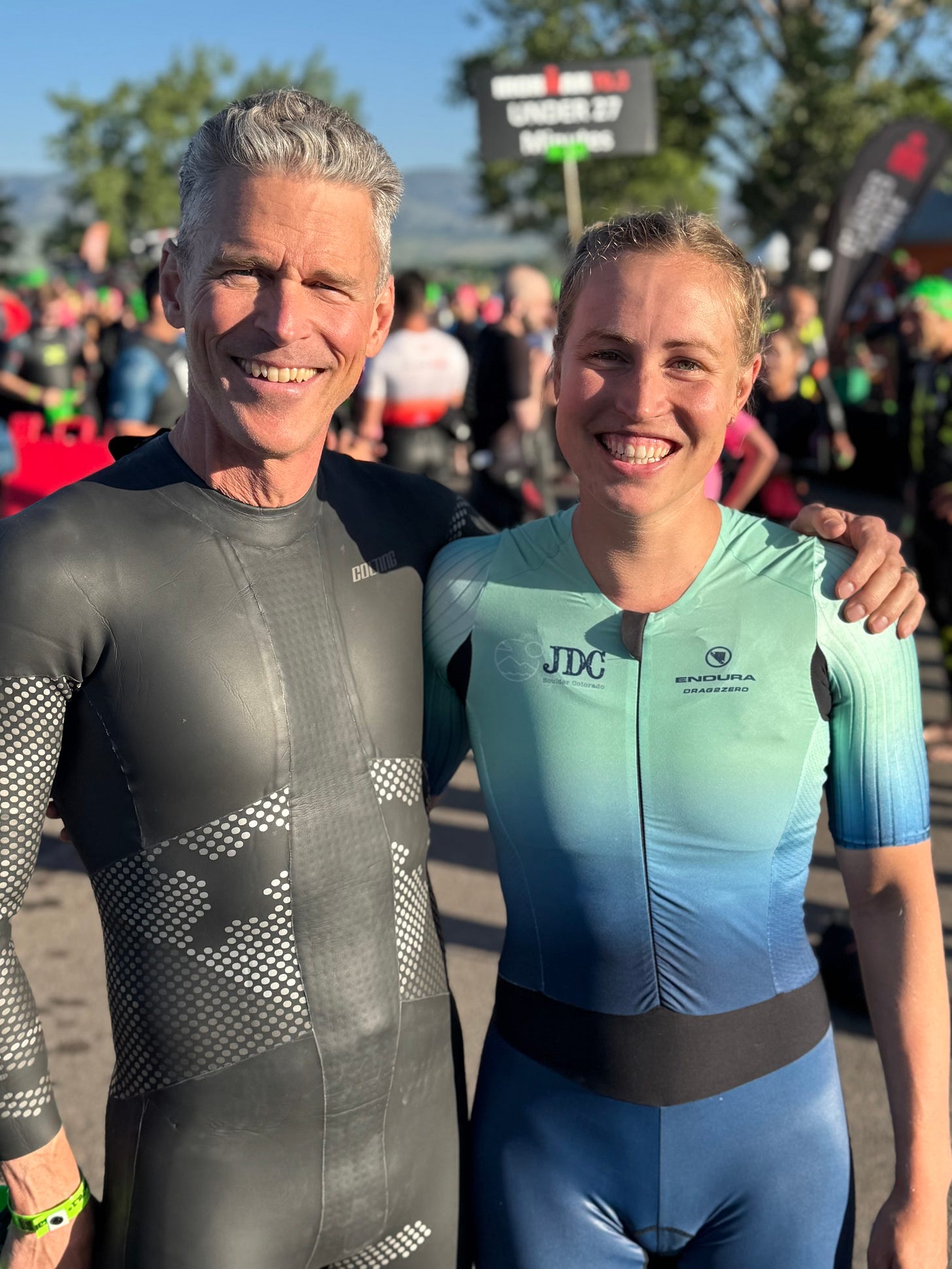
In the Race Specific Block article I mentioned techniques for improving race specific efficiency. I’ve been applying these techniques and seeing useful results.
Let’s recap my strategy.1
Ramp Green Zone Load, First
My Endurance & Strength Block represented my peak volume for this current season.
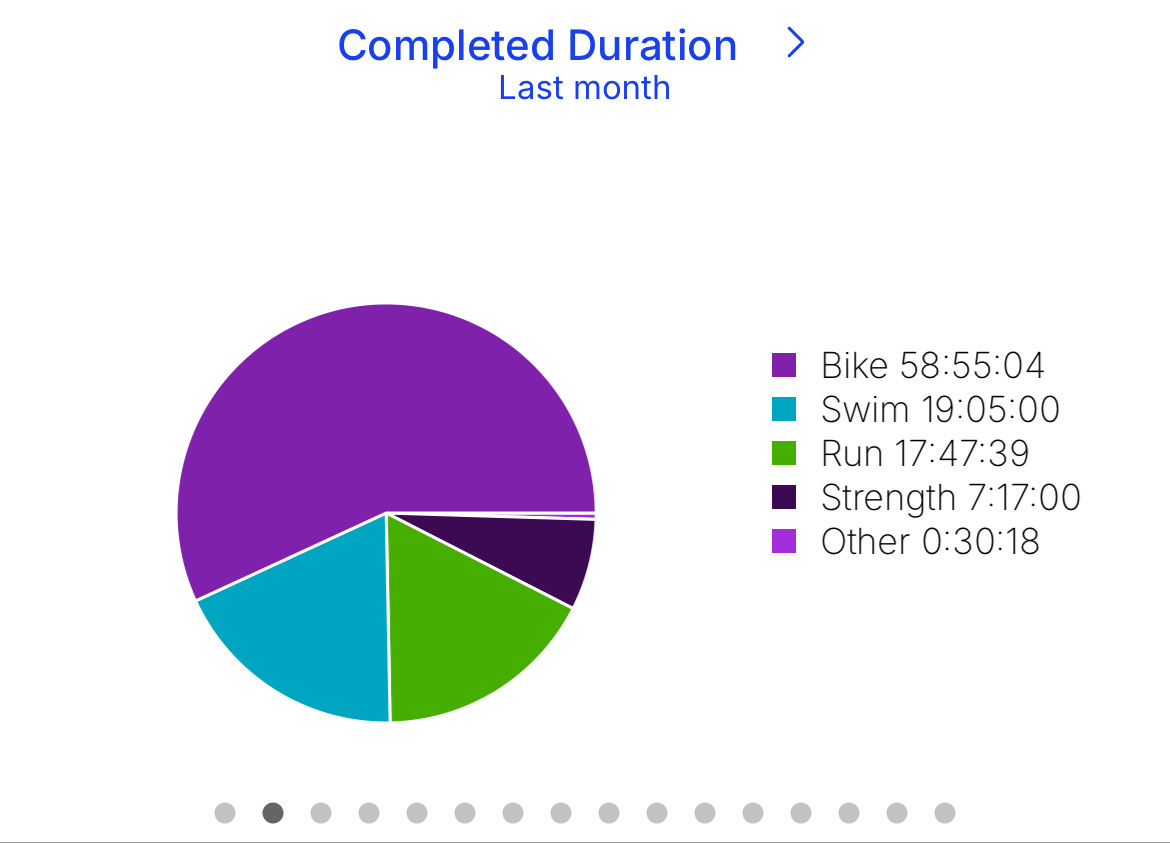
Use A Small Energy Deficit, Next
Following my peak month, I tapered down from the large amount of food I was eating.
There were four tactics I used:
No sports nutrition on easy days.
Water only during long swim sessions, with real food afterwards.
Eat breakfast after short morning sessions, not before.
High-protein salads for dinner, 3-5 nights a week.
The stimulus we are seeking is a slight energy deficit while continuing to train strongly and positively adapt. The points (above) are a low stress way to achieve that goal.
I don’t think there is anything special about the way you decide to create an energy deficit.
However, read on…
Where athletes go wrong is:
Improper fueling around key days (before, during and after), as well as
Using too large of a deficit, thereby down regulating training response and impairing overall health.2
The flip side of this technique is placing ourselves in energy surplus during other parts of the year. The surplus is best placed during an anabolic phase, typically strength training or a VO2 Block. It is essential to balance our seasons with anabolic blocks where we seek to build ourselves up. See Multi Year Planning for Endurance Athletes.
Fuel Key Sessions At Race Intake Rates
Scott Molina has a favorite quote of mine...
If it was all about weight then they’d have scales instead of finish lines.
In the Race Specific Block, our focus is performance.
To perform, we must fuel the work.
Well before we arrive at our competitive season, we should have figured out our target intake range. See Training Nutrition in my Guide To Going Long.
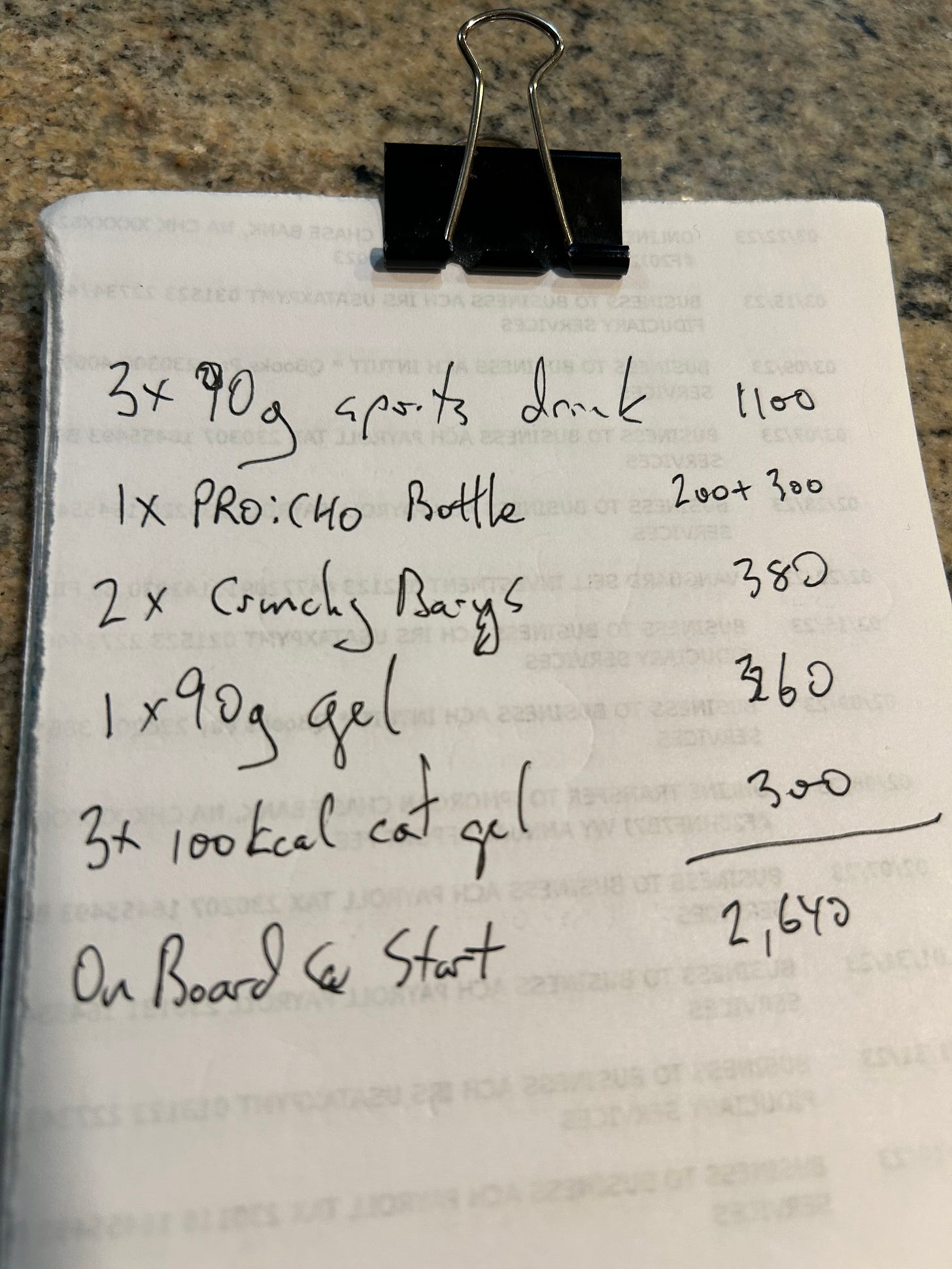
Key sessions are not the time to restrict nutrition. Fuel yourself before, during and after. We want rapid adaptation to race specific stressors.
Monitor Training Performance
If your approach is maladaptive then you need to find out ASAP.
Three things I recommend you monitor:
Specific Session Performance - most important metric. Watch out for heavy leg feelings that don’t clear after warmup.
Submax Testing, outlined in our Training Zones and Lactate Chapters
Heart Rate Response - especially in Zones 3 to 5
Managing Fatigue: If your approach is adaptive then you will be getting better. If that’s not the case then consider a Rejuvenation Block to get yourself back on target. It’s normal to need extra easy days to absorb races, and race specific sessions.
Managing Fueling: If your fueling is low then you will see suppressed heart rate for a given effort. You will also have an inability to elevate heart rate during your high intensity sessions and races.
In the Race Specific Block, an inability to elevate heart rate is a red flag that your program is maladaptive. Get yourself back to a normal heart rate response ASAP by shedding fatigue and fueling better.
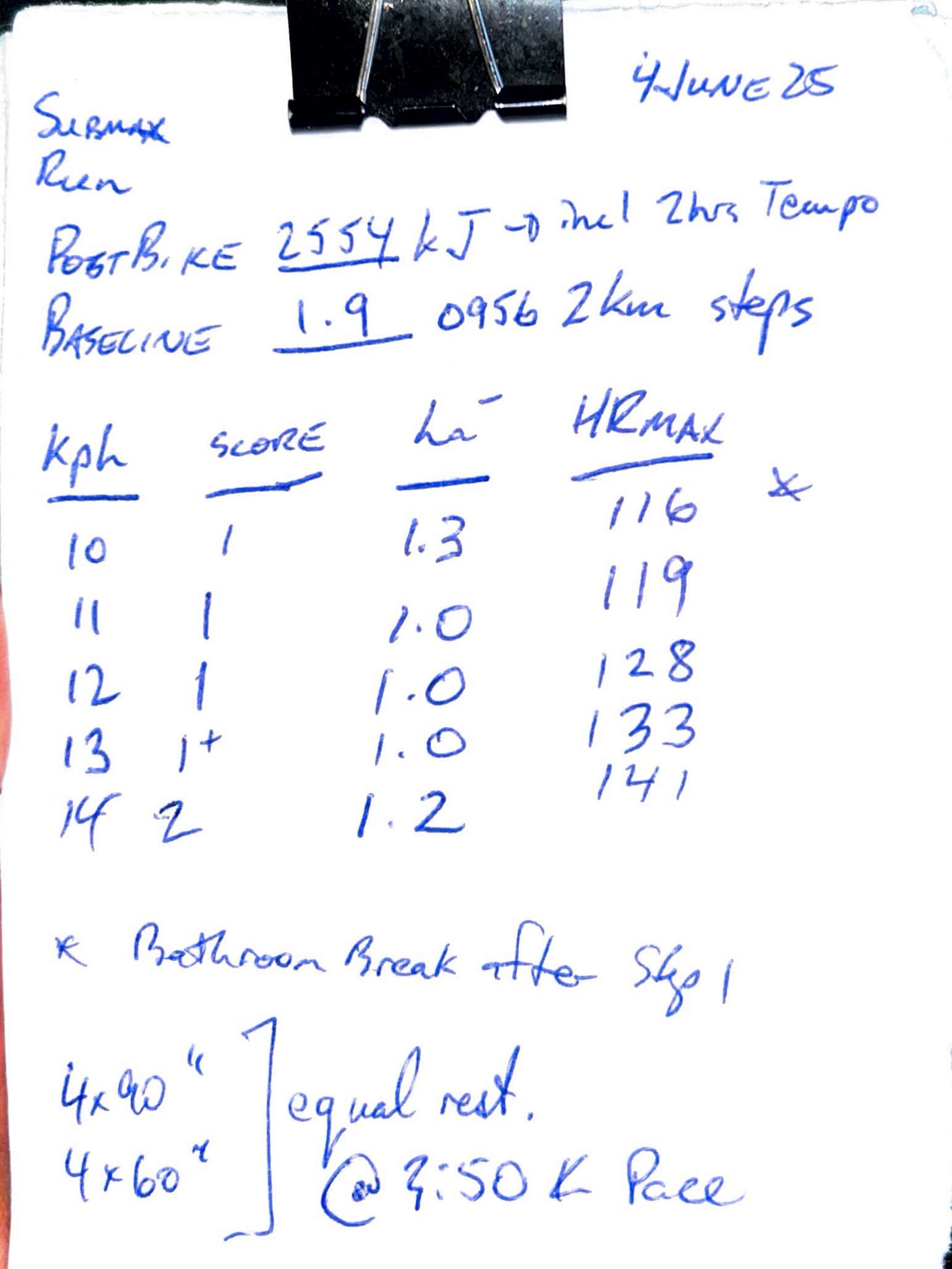
Monitor Resting Metrics
The Monitoring Section of John’s Tired Athlete Chapter gives you specifics.
I keep it simple.
How do I feel?
Is soreness clearing?
Are small cuts healing?
How about sleep, mood and cravings?
Long before we have health issues, our training has become maladaptive. If performance matters then we need to stay away from the edge.
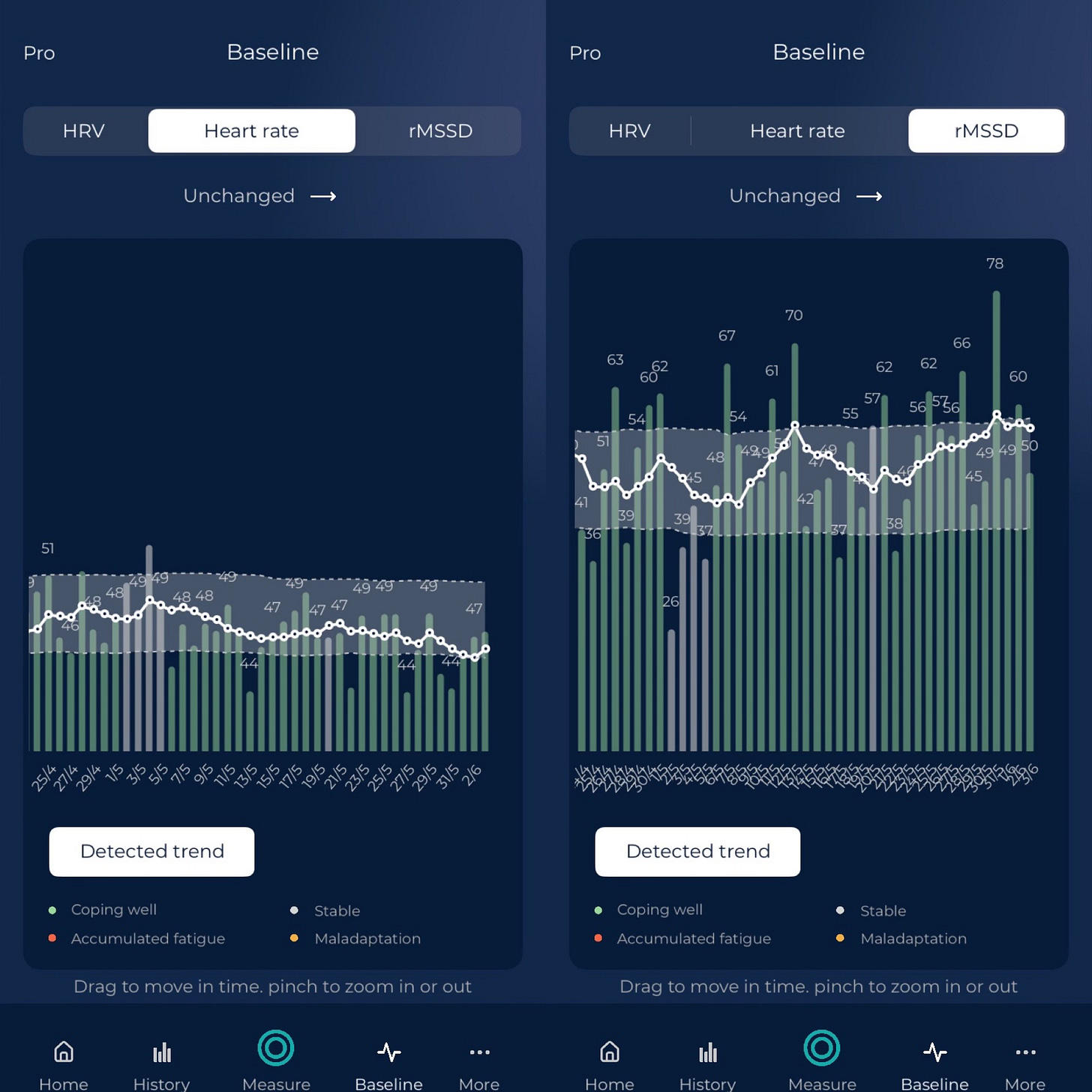
Final Words
These are marginal gains.
Keep the primary focus on the quality of your training and never lose the last kilo.
Back to The Physics of Performance
Back to Gordo’s Guide to Going Long
Back to Table of Contents
For a similar strategy in a different sport, please see Nils van der Poel’s book How To Skate A 10K. Notice the difference between his eating season (anabolic) and his race weight (performance focused).
See our series on REDs. Part One and Part Two. Also, my video on REDs.




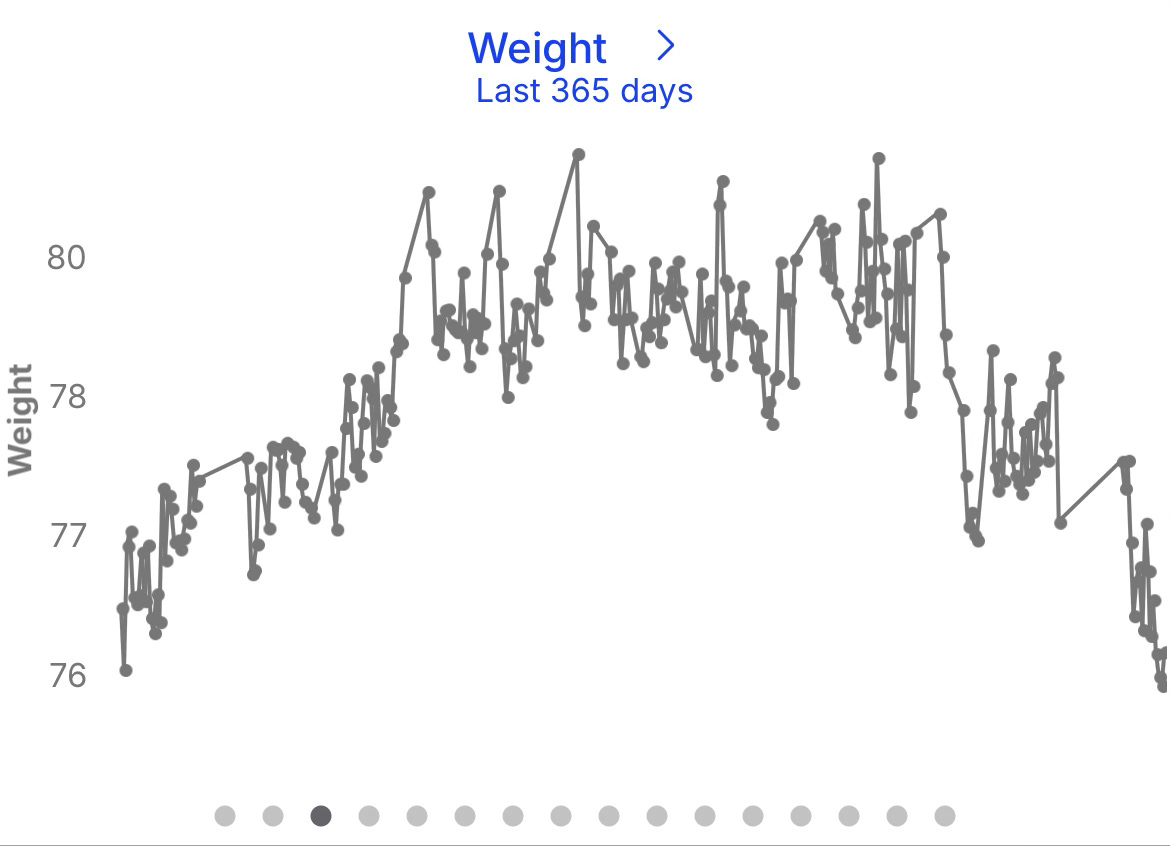

The Molina quote ✅
I really appreciated the comments on Managing Fatigue and Managing Fueling. Besides fueling too low, are there any reasons that a suppressed heart rate exists (i.e., lack of sleep, lack of water, or inadequate recovery)?